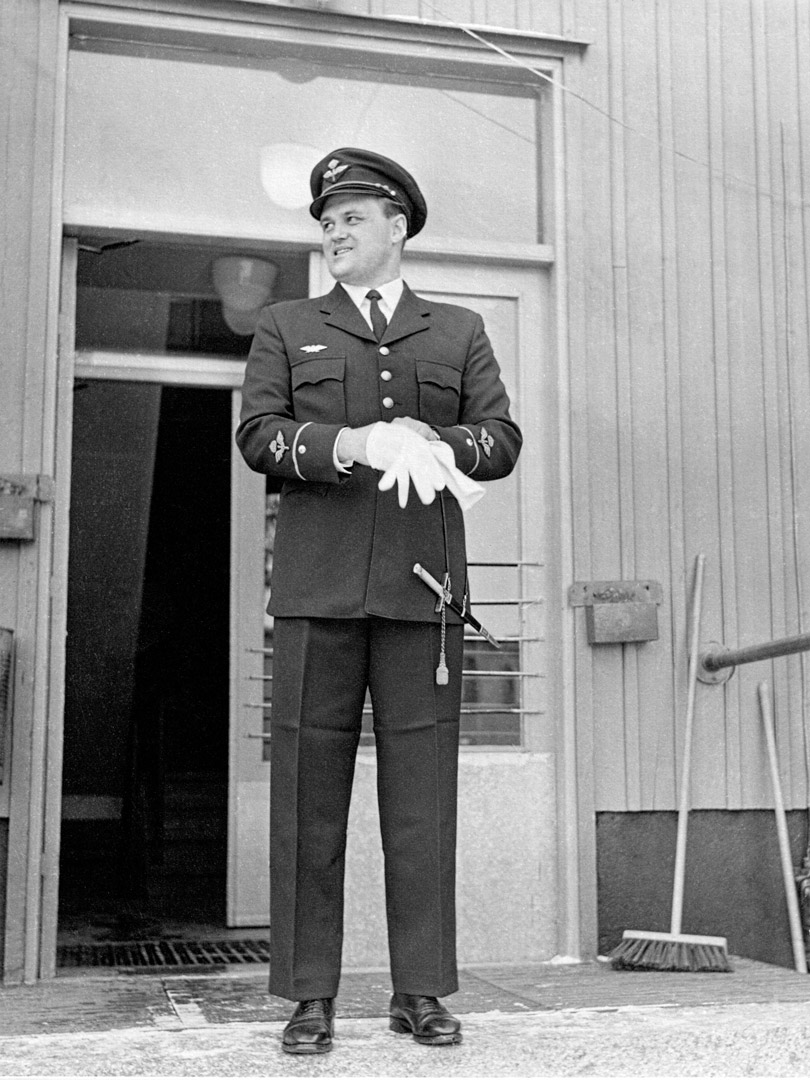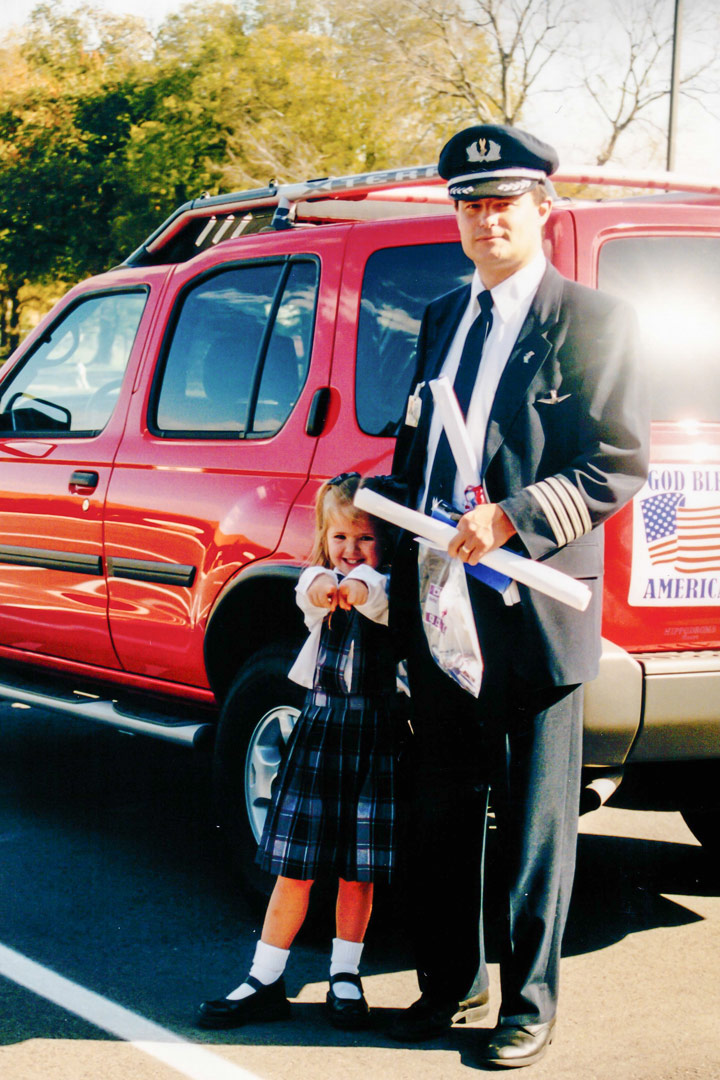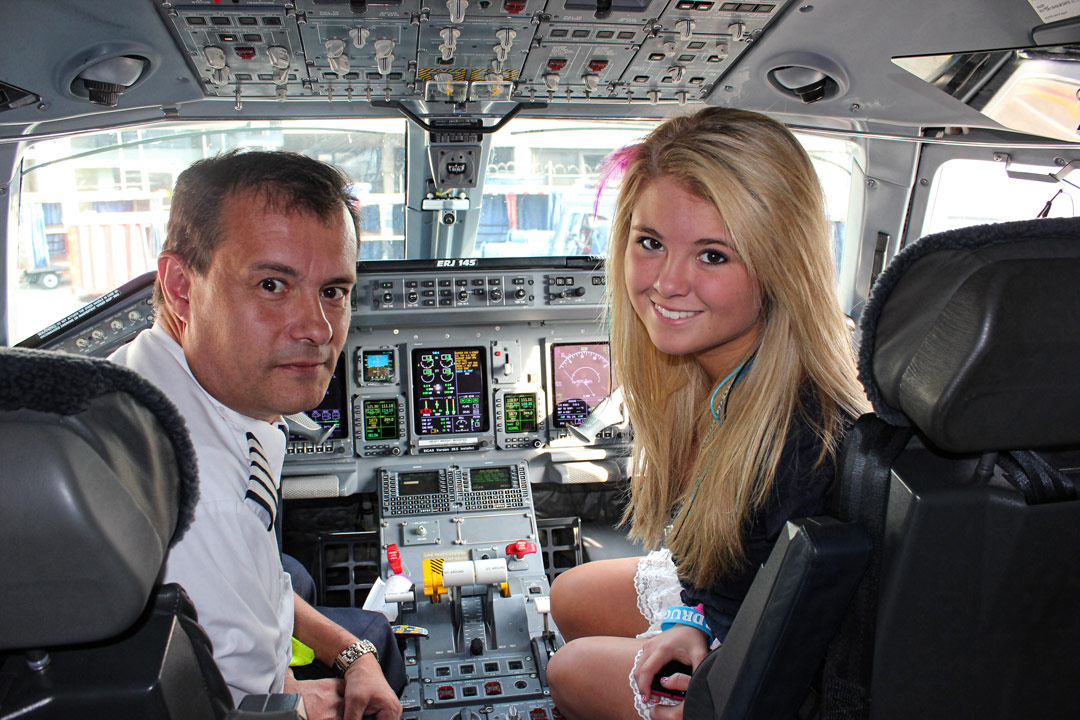



Why I Chose Aviation
I am the type of person that likes to try new things, travel, experience things first hand, and always be on the go. The first time I bungee jumped off a tower, it took me several tries before I would do it. It was a blast, and even though it was scary, I have learned how to overcome the fear and do it.
One of my greatest fears is that I will end up having a “gray life.” I never want to work in an office or cubicle for a large company that does not care who I am. I do not want to do the same thing day after day. I always want to be challenged and learning something new.
However, I was born into an aviation family. Both my father and grandfather are pilots. I have flown as a passenger since I was a baby and am probably one of the only people you will ever meet that loves the smell of an airplane and find the flight to my destination as one of the best parts of any trip. The first time I was taken up in a small Cessna and allowed to control and fly the plane the experience completely overtook me. The powerful feel of taking off from the ground, looking out of the cockpit over the lake as the early morning sun gleamed off of the water surrounded by lush green trees and hills, the freedom of me turning the plane, the sounds and views only pilots have the opportunity to experience. I was hooked.
Life Goals
Ultimately my goal is to become an airline pilot and a fighter pilot flying the most advanced aircraft in the world for the Air National Guard. As a small in stature female, I know I will have to prove that I have what it takes to earn the opportunity to fly with the very best pilots. I am pushing hard to be not only a be good pilot but also a person of high moral character. There are many professions in the aviation industry, such as pilots, air traffic controllers, aerospace engineers, mechanics, meteorologist, flight dispatchers, just to name a few. One thing that all of these professionals have in common is: if they fail to do their jobs many people can be hurt or killed.
Learning my first lesson in Flying
It was a gorgeous summer day. My insanely small Cessna 172 bounced in every direction as I soared over Percy Priest Lake. “Dang look at me,” I thought, “I’m flying a plane! Who else can say they can do this?” My ego was as high as the plane when suddenly, things flew out of control. While looking at the horizon, the door I squeezed up against flew open, all the way to the wing, 3,000 feet above the lake. As my heart and ego dropped, I realized that I had forgotten to lock the door properly. The hurricane-force winds swirled around the cabin; I sat there in shock while my instructor calmly said, “Hey, mind shutting the door?” That was when I realized; I had to reach outside of the plane, grab the door, and shut it all while the aircraft was still in the air. Since I had caused this mess, I now had to fix it. I reached out of the plane, stretching as far as I could, grabbed the door, and pulled it shut. I will never forget those brief moments my body was hanging outside of the plane or the sight of the lake so far below me. I will also never forget to lock the door properly. Welcome to aviation, it’s where you can be most free, but it’s also a place where you have to stay on top of everything constantly.
What does it Take to Fly?
Aviation professionals must have excellent critical thinking skills and the ability to follow instructions. They must be self-starters who can see what needs to be done and complete tasks accurately and timely. Not only do aviation professionals need good technical skills, but they must also have the right type of personality for a highly demanding job. The aviation industry requires that many people work together. Aviation professionals need good communication skills so that they not only speak and write well but are also willing to listen to others. They need good people skills and high ethical standards. This means that they are honest, trustworthy, and respect other people’s ideas and opinions and are accountable for their actions. They need to be calm even during times of stress and confident in their abilities and training. Aviation professionals need to have positive “can-do” attitudes and be team players who work for the common interest.
Aviation professionals receive a high level of technical education and are also required to continually learn new things to stay current with the latest technologies in an ever-changing environment. For example, pilots must complete hundreds of hours of ground school and flight training to receive the many licenses and ratings required to fly professionally for a regional airline, corporate office, or freight company just to name a few. They must learn the Federal Aviation Regulations and prove that they are ready to fly under all types of weather conditions and environments. After thousands of hours flying, some may have the opportunity to fly for a major airline which is the beginning of another long road. Once hired, pilots must undergo intensive training months and will have more training every year throughout their career. They receive classroom instruction, spend many hours in a simulator, and then have to prove their air proficiency with a check airman. They not only learn to fly a particular aircraft but also learn about the company’s services and logistics.
As the daughter of a pilot, I’ve seen how difficult and rewarding this career can be. The life of an airline pilot can be very stressful and hard on families. A pilot does not know until a couple of weeks before the next month where or when they will be flying. The business is 24 hours a day, seven days a week, with no holidays. Airline pilots often miss time with their families, such as their baby’s first steps, their son’s football games, or their daughter’s dance competition. Often, family emergencies happen while they are across the world, leaving their spouse to deal with it all alone. They miss birthdays and holidays. It is not a lifestyle for the faint of heart. Every day these pilots have the lives of their crew and others on board in their hands.
Despite the high levels of stress and responsibility, there are those special people who are drawn to this career. Regardless of the sacrifices they make or the continual learning and upgrading, there cannot be a better office than that of the cockpit. Watching sunsets over the mountains or starlit cities at night, the magic of flight is a freedom that pilots are drawn to. Hopefully, as an aspiring pilot, I will be able to live up to my father’s dedication and proficiency and make him proud. Pilots and all of the aviation professionals that make flight possible are special people. The aviation industry is not for everyone, but for those who are up for the challenge and have what it takes, it is more than just a job; it is their passion.




